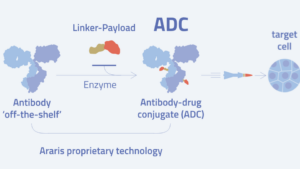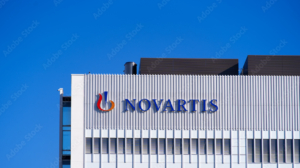
Roche and Novartis react to US tariffs
Despite the World Trade Organisation's (WTO) ban of tariffs on pharmaceuticals, US President Donald Trump has announced he would consider imposing tariffs on pharmaceutical products. In a fast reaction, Swiss pharmaceutical giants Roche and Novartis, which are heavily dependent on the US market, have announced upcoming investments in the US as a production location by 2030.
At the same time, EFPIA, the EU’s pharmaceutical industry association, used the announcement to press its political demands on the EU Commission.
While Novartis announced investments of $23m in six production plants and US$27bn in other investments by 2030, Roche promised to invest US$50bn in production at a total of nine new sites to be commissioned after the end of Trump’s current term in office. According to the Swiss pharmaceutical association scienceindustries, the Swiss pharmaceutical industry’s investment pledge amounts to around US$150bn.
German newspaper FAZ estimates that any US tariffs on Swiss pharmaceutical imports will be around 31%, compared with 25% for EU-manufactured drugs. Swiss exports to the expensive US pharmaceutical market amounted to US$32bn in 2024, just a tenth of US pharmaceutical imports and 40% of Swiss total export sales. Roche, the world’s second-largest pharmaceutical company, would be particularly hard hit, as it generates 50% of its sales in the US market, where drugs are on average four times more expensive than in other pharmaceutical markets.
However, whether the US will impose tariffs on pharmaceuticals is still open and, according to the German Pharmaceutical Association VFA, ‘highly speculative’, which is why it does not want to comment on the possible consequences of a tariff barrier for pharmaceuticals. The basis for whether Trump will impose a tariff barrier on pharmaceutical imports is a Section 232 national security investigation of US pharmaceutical companies by the US Department of Commerce. The purpose of the investigation is to determine whether US national security is threatened by reliance on pharmaceutical imports and whether this could be remedied by increasing pharmaceutical production in the US. Tariffs on pharmaceuticals would also have an impact on biotech companies.
However, given China’s average 40% global share of active pharmaceutical ingredient (API) production, which are produced 35-40% cheaper there, such targeted resilience appears costly. China’s global market share of 80% for generic antibiotics is much higher, together with its share of over 90% for painkillers such as ibuprofen and 80% for the diabetes drug metformin. Supplies from China, which is subject to high US tariffs, appear to be anything but secure for the US. As 91% of drugs sold in the US are generics, cost-driving restrictions on pharmaceutical imports seem less productive. In addition, China has caught up or even surpassed the US in drug innovations such as antibody-drug conjugates (ADCs) and bispecific checkpoint inhibitors, meaning that pharmaceutical tariffs would cut the US population off from innovation.
However, Trump’s threat could still have one positive effect: a faster reduction in bureaucracy in the framework conditions for biopharmaceutical companies in the EU. At the beginning of April, the EU pharmaceutical federation EFPIA published the results of a survey of 18 member CEOs, which are tantamount to a warning shot to EU Commission President Ursula von der Leyen:
Investments of €164.8bn in the EU in the period from 2025 to 2029 would be at risk in view of Trump’s tariff threat if positive framework conditions for R&D and manufacturing were not adopted quickly enough, EFPIA said.
EFPIA combined the open threat that its companies would withdraw from Europe in favour of the US with four demands
he CEOs called for immediate action on:
1. Achieving a competitive EU market that attracts, values and rewards innovation in line with other economies at the forefront of patient care
2. Strengthening rather than weakening Europe’s intellectual property provisions
3. Adopting a world leading regulatory framework conducive to innovation
4. Ensuring policy coherence across environmental and chemical legislation to secure a resilient manufacturing and supply chain of medicines in Europe.
However, industry experts know that the EU market is far too important for globally active companies. But the publication at least shows where the wishes of the pharmaceutical companies lie.


 Araris Biotech AG
Araris Biotech AG adobe stock photos - Michael Derrer Fuchs
adobe stock photos - Michael Derrer Fuchs  Roche
Roche